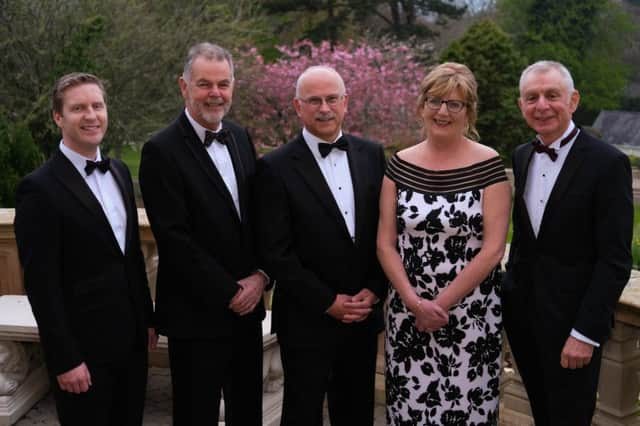Compound feed industry growing


Speaking at the organisation’s annual dinner for 2019, he said that every weekday local millers produced 10,000t of animal feeds, adding: “That was over 2.6 million tonnes in 2018.
“This past year we have experienced strong demand for ruminant feeds, which was anticipated considering the weather challenges and forage shortages that farmers have faced over the past couple of years. From flooding to drought, they have had to be resilient to cope with it all.
Advertisement
Advertisement
“Increasing pig feed demand has been a feature for many years now and greatly improved genetics has led us to the point where we are producing as many pigs now as 20 years ago with far fewer sow numbers.
“Our factories want more pigs to remain efficient and to meet market demand, so there is further potential growth there to be grasped.
“Poultry feed demand continues to grow, especially for layers and broilers.”
“The increasing demand for chicken and eggs has been a feature in homes across the UK and beyond and our farmers and food businesses here in Northern Ireland have been very successful in getting a significant share of that business.”
Advertisement
Advertisement
Mr Garett went on to point out that, each week, the world’s cities grows by 1.3m people.
“The increasing demand for feed is due to these growing urban populations wanting to eat more meat and dairy food products,” he said.
“This can create its own challenges as many consumers now have little connection to food production or knowledge of farming.
“City dwellers, particularly in affluent societies can often misunderstand farming practices and as a result, they can gain the impression that animals are harshly treated. It is not a fair representation as farmers care passionately about the welfare of their livestock.
Advertisement
Advertisement
“We can only meet this increasing demand for food by the application of good science and technology including the use of products, which protect animal welfare.
The NIGTA president stressed the steps being taken by the members of his association to facilitate the development of new farming techniques which are both animal welfare and environmentally friendly.
He continued: “Agri-food is our biggest industry in Northern Ireland, our biggest export earner and provides high levels of quality employment.
“Our livestock sector is highly efficient and well managed. Output has grown through efficiencies at farm level, involving better genetics, improved nutrition and more integrated supply chains.
Advertisement
Advertisement
“Efficiencies of scale have also played a part in growing our industry and many farms are orders of magnitude larger than a generation ago.
“The grain trade has supported this growth through investment in plant and equipment, in research and development, in the establishment of robust quality systems to protect the food chain and most importantly of all, by training our people to produce better nutritional solutions, provide relevant advice and to deliver much of the technical support that the industry needs.
“We do not want to see narrow environmental considerations cap our ambitions to grow.”
Turning to Brexit, Mr Garrett said that feed supply chains now operate on an all-Ireland basis - often with short lead times.
Advertisement
Advertisement
“The efficiencies that have allowed grain and other cargoes to off-load in multiple ports could be curtailed with different treatment of imports between UK and EU,” he commented
“Any delays or complications to our supply chain, physical or otherwise, will inevitably create additional costs that business will need to absorb or pass on to the end consumer.
“Our feed mills and livestock producers depend on imports of over two and a half million tonnes of feed materials.
“We therefore need to have tariff-free access to the global market for grains and proteins to ensure a competitive cost base for local farmers and a level playing field with our nearest competitors.”